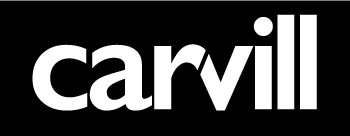Marketing yourself via your CV
 Does your CV sell who you really are?
During this ‘economic’ crunch – if you are looking for a new job, a new contract or a new position – then don’t forget that your CV is a crucial marketing resource.
Does your CV sell who you really are?
During this ‘economic’ crunch – if you are looking for a new job, a new contract or a new position – then don’t forget that your CV is a crucial marketing resource.
Whilst I don’t promote myself as an ‘expert’ in CV writing – I do understand the merits of getting key points across in a concise way. And the principles of ‘engaging the user’, whether in the 8 seconds we’ve got on a web page, or the 2 seconds we’ve got when someone looks at their pile of mail, or a subject header in an email – still apply when creating your CV.
In fact, with CV’s, the rule is ’30 seconds’. In the first 30 seconds of reading your CV, the reader will have already made up their mind about you.
So – what to do to ensure that you’ve engaged them enough to read more about you - and engage them to make sure that they select you for interview!
1) Be sure to include your name, status and current contact details at the top of the CV. Keep it simple and not too much information – name, address, date of birth (not mandatory), email, telephone and mobile.
2) My advice is then to create a short synopsis of who you are. In this short paragraph (try and keep to no more than 4 lines), you want to get across your experience in a concise way eg: ‘marketing expert with over 15 years hands-on marketing and management experience within the blue chip arena’. This short sentence tells the reader that you’re trained, qualified, have significant experience and the type of arena you’ve been used to working in. If you’ve got qualifications or are fluent in a certain technology – if it’s relevant and something that can differentiate you – then get it out and up front.
3) I would further suggest that you then include a section called something like: Key Activities/Achievements. A bullet point style list of say 6-8 items, which selects key roles/objectives/positions from within your experience portfolio – really highlighting what you’ve done to date. Eg: Responsible for a Global Marketing Team of 25 managing a marketing budget of circa £3M.
4) You then want to run through your Experience Summary putting your most recent positions first. Be sure to include more info in your more recent positions – and less in those that are years in the past. The reader is interested in what you can do now.
5) What’s usually lacking in a CV in the experience summary section is ‘achievements’. So, rather than simply providing the reader with a list of ‘positions’ you’ve undertaken in the past – be sure to include any achievements. For example: If you are going to write: Created an intranet solutions for XYZ Company - then be sure to tell the reader what that meant to the company. So trying that sentence again: Created an intranet solution for XZY company which enabled them to connect globally with key suppliers, internal managers and team, differentiating them from competitors and ultimately making the business 40% more productive. See the difference.
6) Use positive ‘action’ words such as; controlled, responsible for, initiated, implemented, supervised, led, contributed, managed. Don’t overdo it of course, but using these words encourages you to focus on the differences you made.
7) Where possible use numbers to demonstrate your level of responsibility. For example; marketing manager responsible for a team of 12. Marketing manager responsible for a budget of £4M. 8) Similarly, use numbers to demonstrate the impact you made to a business; eg: contributed to sales growth of 30%, improved conversion rate from 20 to 70%, implemented an HR appraisal scheme which reduced staff turnover by 15%.
9) Don’t be bashful – think about your achievements and how best you can get them across. Keep it concise and simple.
10) On to concise – it’s a MUST that your CV should be no more than 2 pages. There’s an art to saying as much as you can in few words. But believe me, it’s necessary with a CV. Be sure you have cut out any ‘waffle’ – and that you are only focusing on what the reader is going to be interested in. Go through your CV with the ‘so what’ – viewpoint. If it’s not that important – then take it out. You’ve got to be ruthless and targeted! And if you do feel that you need to add more detail, create a supporting document. Many consultants have in place what’s called a ‘Statement of Qualification’. This is a document, which can be tailored to each specific project / position –generally includes more detail. In fact, I suggest that you also get ‘testimonials’ from; past employers, team members or clients – so that the reader can quickly see how you come highly recommended from others…
Good luck…
For more marketing news, views, tips and advice - why not subscribe to
